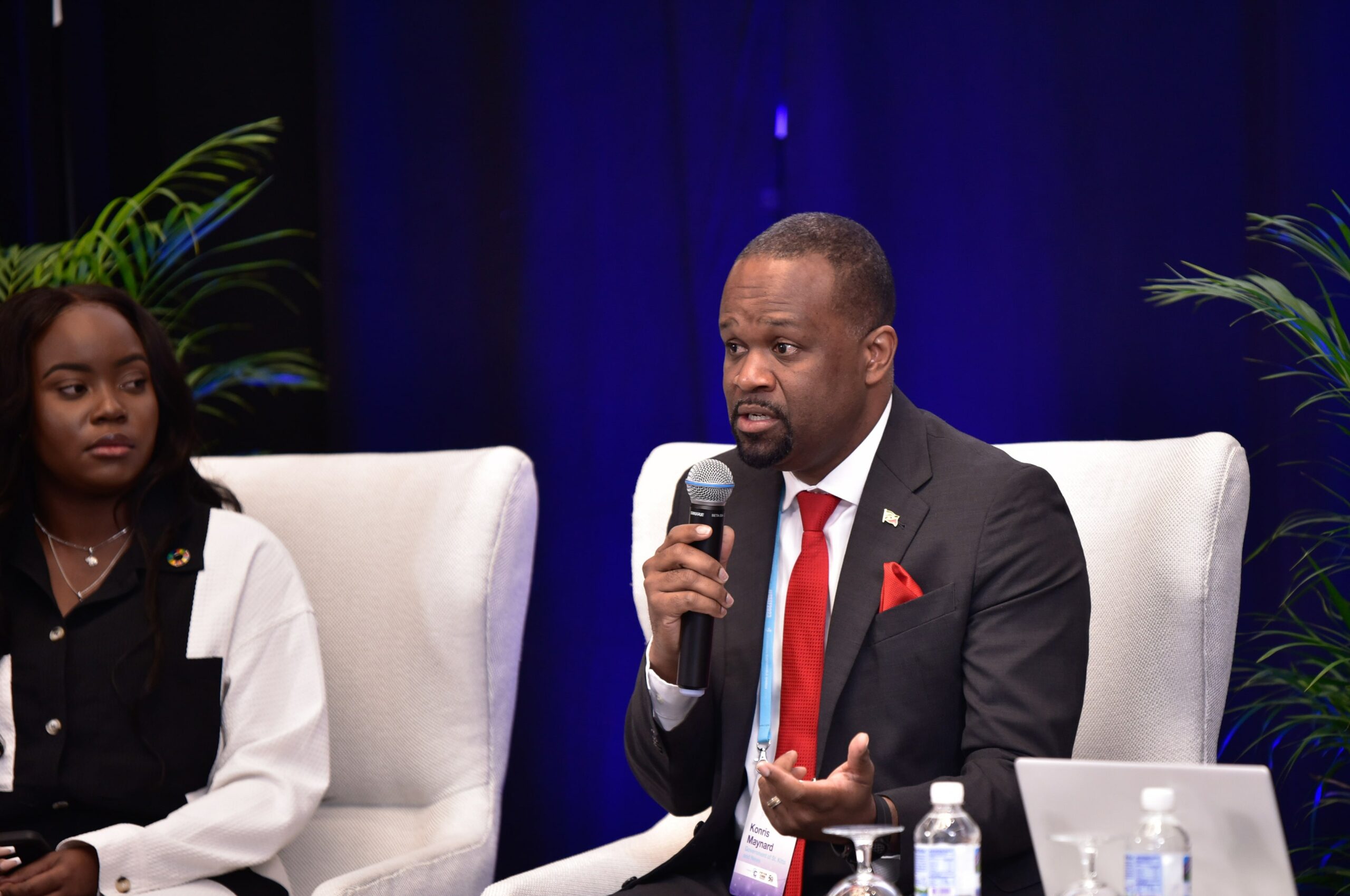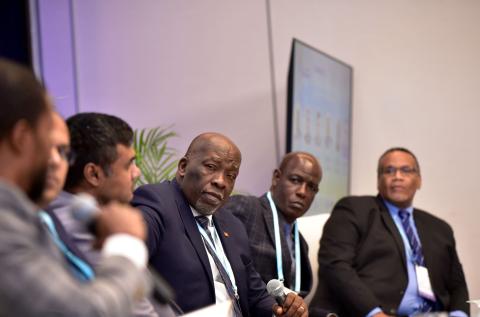Caribbean Energy Champions
Energy Ministers, decision-makers from the public and private sectors and energy sector thought-leaders and experts, last week accepted the challenge to become Energy Champions at the Caribbean Sustainable Energy Forum (CSEF-VIII) held at the AC Hotel in Kingston, Jamaica, from November 7-9.
The Energy Champions agreed to lead the promotion of the Caribbean’s push towards the accelerated use of cost-effective domestic renewable energy sources, coupled with energy efficiency and energy management measures to transition to resilient and secure economies whilst, simultaneously, contributing to the global decarbonization goals.

On November 8, during the closing of the business sessions, Ms. Cherri-Ann Farquharson, Capacity Building and Gender Expert at the Caribbean Centre for Renewable Energy and Energy Efficiency (CCREEE), challenged delegates from the fifteen Caribbean countries in attendance to stand to demonstrate they commitment to leading the advocacy and actions for change upon their return to their respective jurisdictions. “We have heard multiple times, first stated during the opening session of this Forum by the Chairman of the Executive Board of the CCREEE, Dr. James Fletcher, that we need energy champions … So, I’m going to ask those who are willing and ready to accept this call to action to be an energy champion, to stand, demonstrating that commitment to be energy champions across the Caribbean,”, said Ms. Farquharson.
All the delegates stood to signal their interest and commitment to serve as energy champions. Specifically, Hon. Melford Nicholas, Minister of Information, Communications Technologies, and Utilities and Energy in Antigua and Barbuda; Hon. Kerryne James, Minister of Climate Resilience, the Environment and Renewable Energy in Grenada; and Hon. Konris Maynard, Minister of Public Infrastructure, Energy and Utilities, Domestic Transport, Information, Communication and Technology, and Posts in St. Kitts and Nevis, committed to not only driving change within their respective countries, but to serving as change agents who would champion the push for accelerating the use of cost-effective domestic renewable energy sources. The Ministers are from countries that are already among the global leaders in the promotion of renewable energy and the view is that their efforts could accelerate the collective ambition of CARICOM countries to the energy transition whilst, simultaneously, contributing to global climate abatement goals.
The Forum was held under the theme: “RE-Powering Transport”. Transport is one of the world’s three largest energy end-use sectors and although energy-use for transportation within the CARICOM region varies widely by country, in most instances, its share of total consumption within the individual jurisdictions greatly exceeds the global average. The view is that any effective regional approach toward the energy transition must address energy-use within the transportation sector in a significant way; hence the theme and focus of the Forum.
The CCREEE Chairman, Dr. James Fletcher, himself a former Minister of Energy and Climate Change in Saint Lucia, noted that “our Ministers provided synopses of what they are doing, and the Forum provided opportunity for them to talk to each, which they have been doing, so our countries can learn from the practices of each other and avoid mistakes, where possible”. Dr. Fletcher further stated that: “the commitment of a room full of delegates to serve as energy champions for the region, if nothing else, is a major step in the right direction.”
Assistant Secretary-General of Economic Integration, Innovation and Development at the CARICOM Secretariat, Mr. Joseph Cox, reiterated to delegates that, despite the fact that all Member States, albeit at different stages, are already on the energy transition pathway, the region still has a long way to go before the aspirations of attaining a rapid and just transition of the energy systems would be reached.
He further stressed the need for countries to become creative in how they manage the transition, pointing out that, in some countries, there is the realistic potential to become major suppliers of low-carbon commodities within an emerging global market that is seeking to decouple from the fossil fuel and petrochemical industry, such that their energy sectors would not only serve as enablers for the traditional economic drivers but as significant economic earners in their own right.
The Assistant Secretary-General announced that a regional think-tank would be established to complement and support the energy champions. The think-tank is to provide technical inputs into the articulation of plans and actions, as well as the quantification of the investments, enabling environment, and requirements that are necessary for the energy transition.
Mr. Cox charged the CCREEE, in his capacity as a Member of its Executive Board, to move quickly to upscale its Project Preparation Facility, to increase its support to countries in the development of projects that are fitting and appropriate for an energy transition, not simply for cost-savings and carbon abatement benefits, but also to strengthen their longer-term sustainable development and resiliency strategies.





